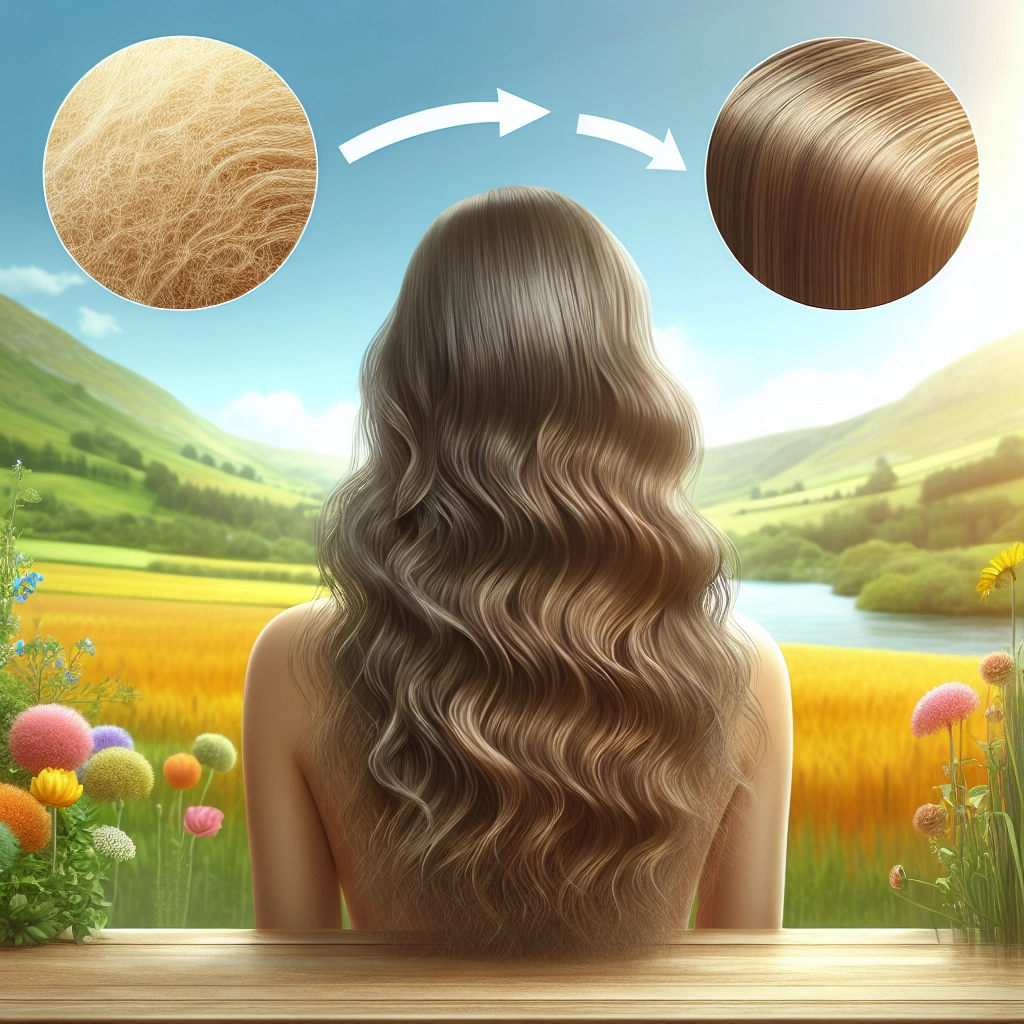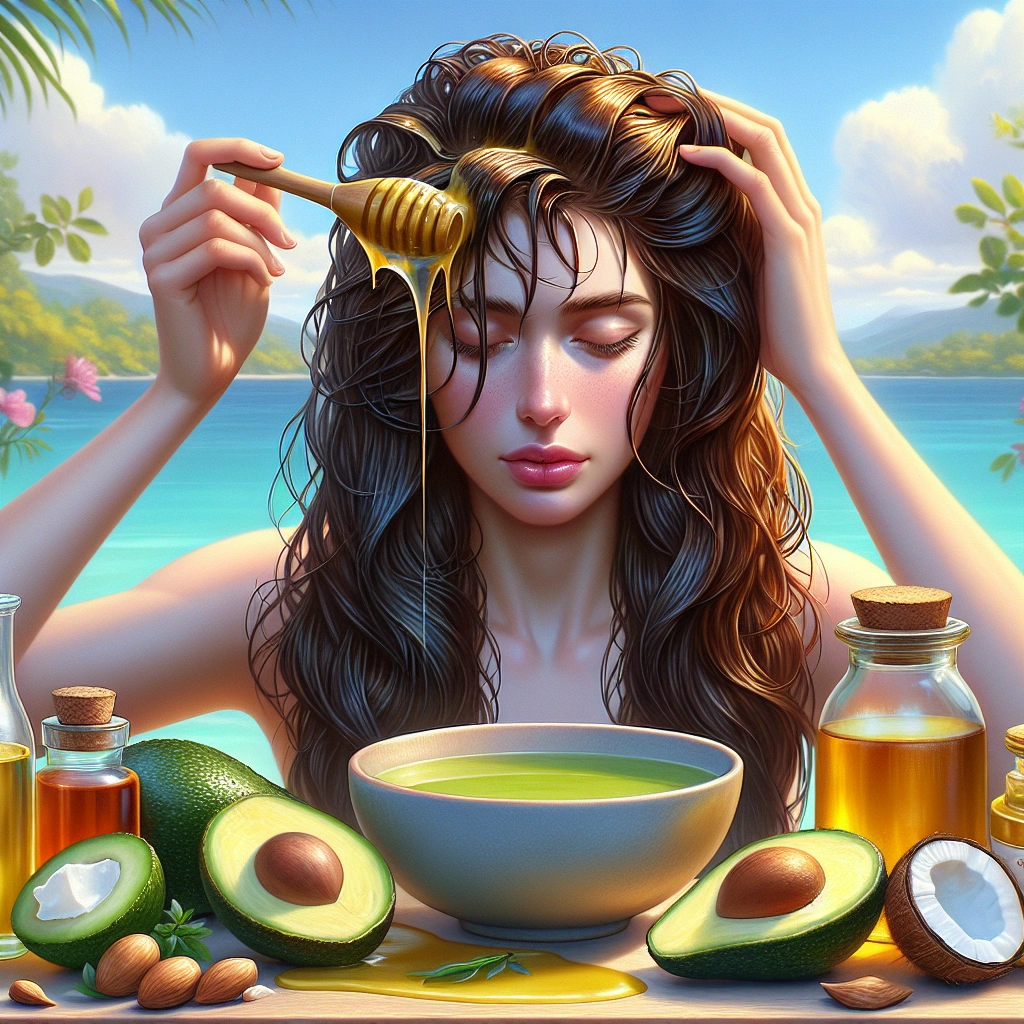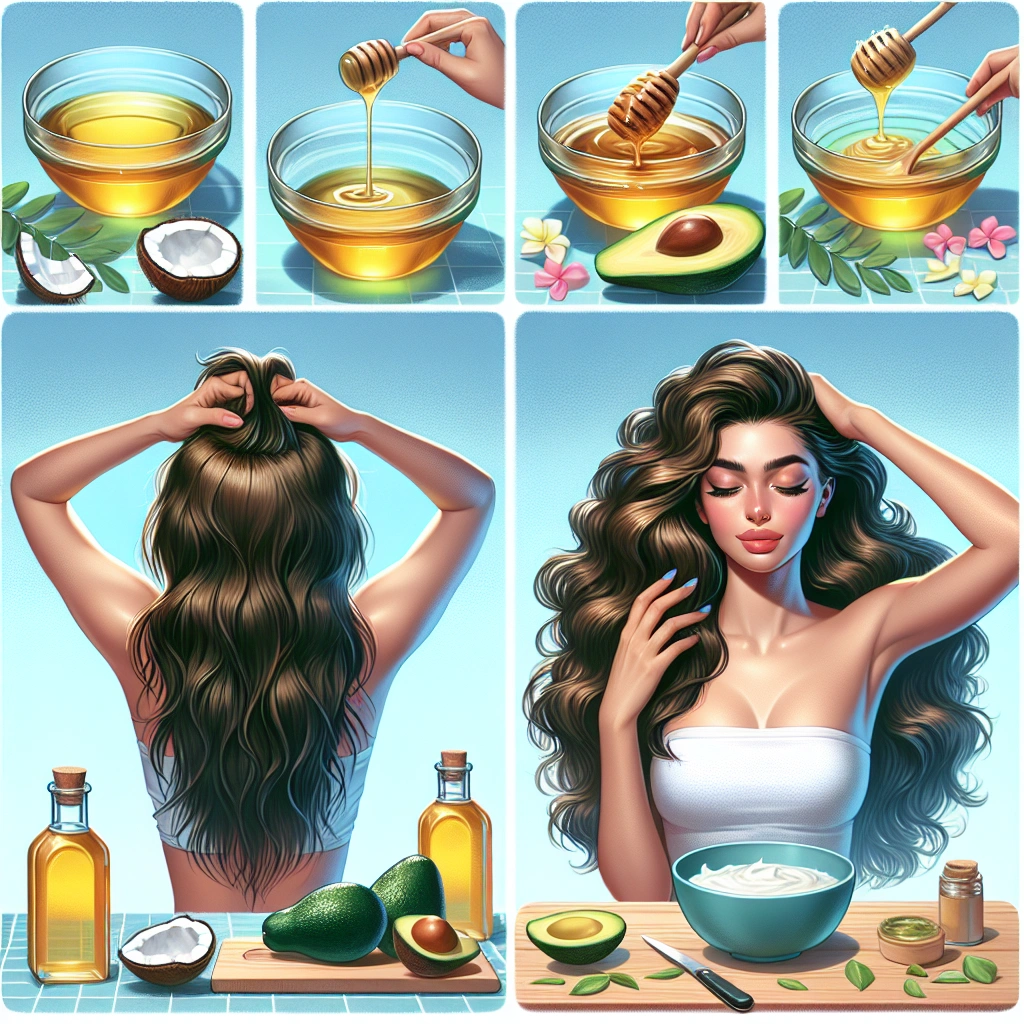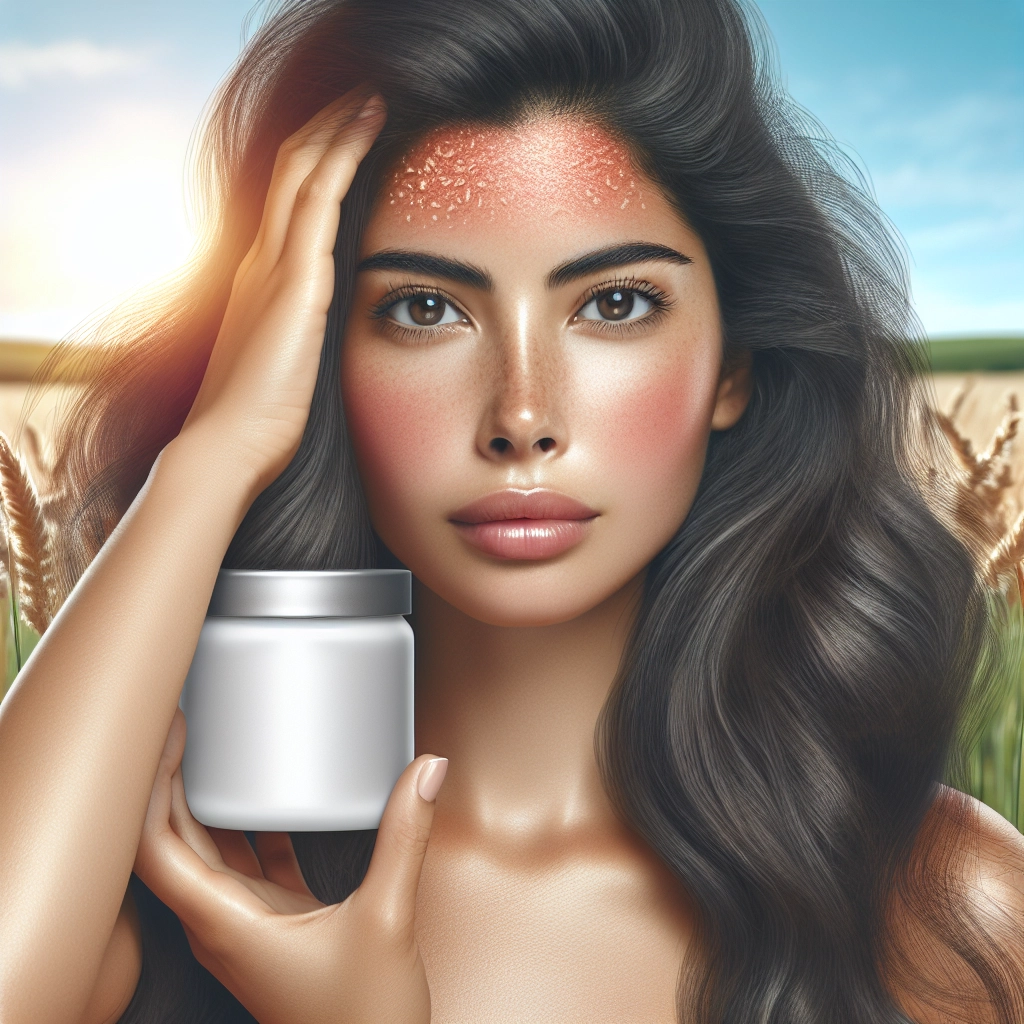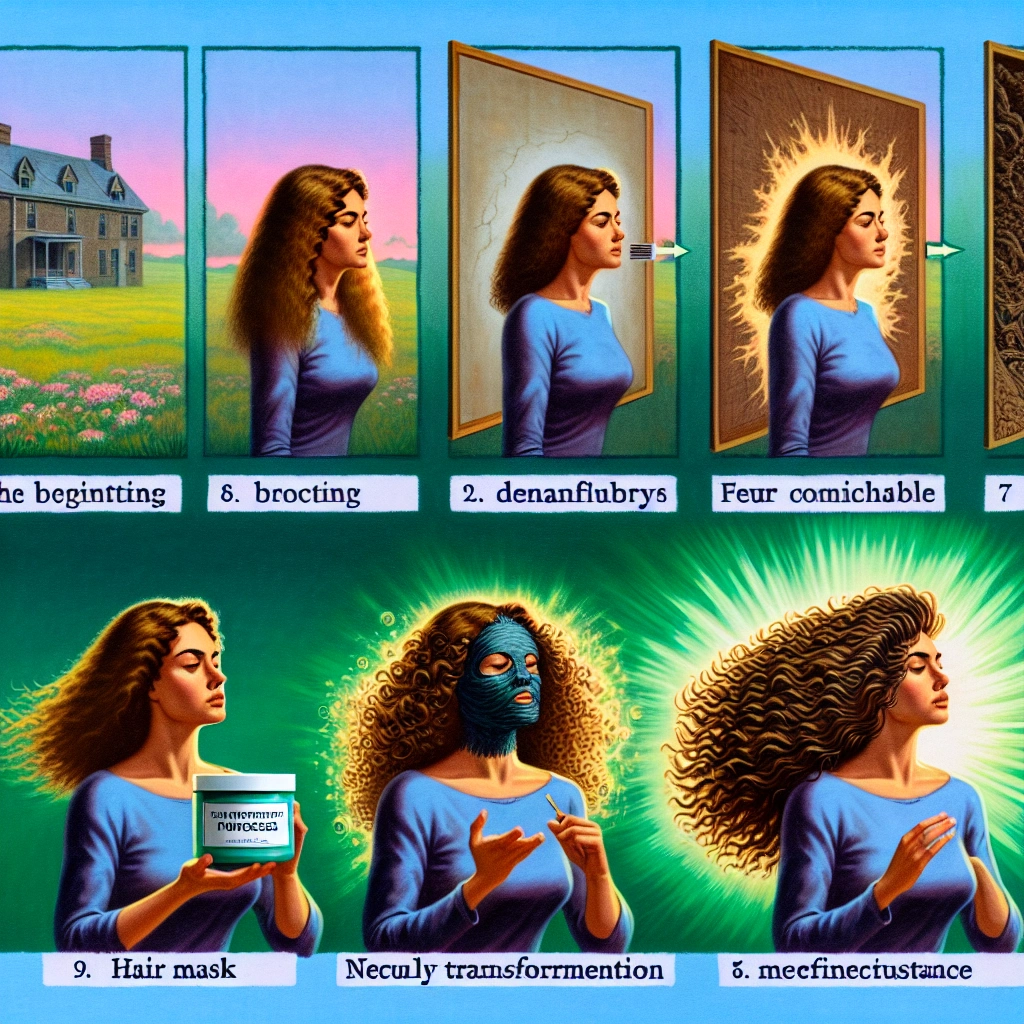

Hair masks are essential for dry, frizzy hair because they provide deep nourishment and hydration that regular conditioners cannot. These masks help to restore moisture to the hair, making it softer, shinier, and more manageable.
Using DIY hair masks has several benefits, such as saving money, knowing exactly what ingredients are being used, and customizing the mask to address specific hair concerns. Additionally, DIY hair masks often use natural ingredients that are gentle on the hair and scalp, reducing the risk of irritation or damage.
By using DIY hair masks, individuals can improve the overall health and appearance of their hair.
Check out this Youtube video: “Best Hair Masks For Dry, Frizzy Hair Under Rs.1000 – YouTube” for some affordable hair mask recommendations to nourish and hydrate your dry, frizzy hair.
Understanding Dry, Frizzy Hair
Definition of dry, frizzy hair
Dry, frizzy hair refers to hair that lacks moisture and appears rough, dull, and prone to frizz. Dry hair lacks the necessary natural oils to keep it hydrated and smooth, leading to a brittle texture that is prone to breakage and split ends.
Common causes of dry, frizzy hair
The common causes of dry, frizzy hair include excessive heat styling, over-brushing, environmental factors such as sun exposure and pollution, using harsh hair products, and not using enough conditioner. Additionally, genetics, hormonal changes, and certain health conditions can also contribute to dryness and frizziness in the hair.
Impact of environmental factors on hair health
Environmental factors like sun exposure, air pollution, and harsh weather conditions can have a detrimental impact on hair health. These stressors can lead to dryness, damage the hair cuticle, and cause moisture loss, resulting in frizzy, unruly hair.
Additionally, exposure to environmental pollutants can contribute to hair breakage and overall deterioration of hair quality.
Benefits of Using Hair Masks
How hair masks help to nourish and moisturize dry, frizzy hair
Hair masks provide intense nourishment to replenish moisture in dry, frizzy hair, resulting in softer, more manageable locks. The deep conditioning properties of the masks penetrate the hair shaft, restoring moisture and repairing damage for a luscious, hydrated look.
Importance of choosing natural ingredients for hair masks
Selecting hair masks with natural ingredients is crucial for providing effective nourishment without harsh chemicals. Ingredients such as coconut oil, honey, avocado oil, and keratin offer deep hydration and restoration, promoting healthier and more vibrant hair.
Choosing the Right Ingredients
List of effective ingredients for DIY hair masks
- Avocado Oil
- Jojoba Oil
- Coconut Oil
- Yogurt
- Banana
- Honey
- Olive Oil
- Mayonnaise
- Apple Cider Vinegar
- Panthenol (Pro-Vitamin B5)
- Ground Cinnamon
- Egg
Benefits of each ingredient for dry, frizzy hair
| Ingredient | Benefits |
|---|---|
| Avocado Oil | Nourishes and moisturizes hair, reduces frizz, and adds shine. |
| Jojoba Oil | Hydrates and conditions hair, helps repair damage, and promotes hair growth. |
| Coconut Oil | Restores moisture, strengthens hair, and prevents breakage. |
| Yogurt | Rich in probiotics, it helps condition and repair hair, making it soft and manageable. |
| Banana | Repairs damaged hair, prevents split ends, and adds natural elasticity. |
| Honey | Retains moisture, strengthens hair follicles, and reduces breakage and frizz. |
| Olive Oil | Adds moisture, shine, and softness to dry, frizzy hair, while reducing scalp irritation. |
| Mayonnaise | Conditions and adds shine to dry, damaged hair, making it smoother and more manageable. |
| Apple Cider Vinegar | Restores hair’s natural pH balance, seals the hair cuticle, and reduces frizz. |
| Panthenol | Strengthens and moisturizes dry, brittle hair, making it more flexible and resilient. |
| Ground Cinnamon | Stimulates blood circulation in the scalp, promoting hair growth and thickness. |
| Egg | Nourishes and strengthens hair, adds luster, and helps repair damage. |
Where to source these ingredients
- Avocado oil, jojoba oil, and coconut oil are available in health food stores and online.
- Yogurt, bananas, and honey can be found in grocery stores.
- Olive oil and mayonnaise are common kitchen staples.
- Apple cider vinegar and ground cinnamon are available in most grocery stores.
- Panthenol (pro-vitamin B5) can be found in health stores and online.
- Eggs are available in grocery stores.
Preparing and Applying DIY Hair Masks
Step-by-step guide to preparing DIY hair masks
To prepare a DIY hair mask for dry, frizzy hair, start by choosing a base ingredient such as avocado, coconut oil, or yogurt. Incorporate additional nourishing elements like honey, olive oil, or essential oils for added benefits.
Mash or blend the ingredients until you achieve a smooth, consistent texture. Consider heating the mixture slightly for better absorption.
Finally, apply the mask evenly to damp hair from roots to ends.
Tips for applying hair masks effectively
When applying a hair mask, ensure your hair is clean and damp for better penetration. Use a wide-tooth comb to distribute the mask evenly through your hair.
Gently massage the mask into your scalp to stimulate blood flow and promote healthy hair growth. Once applied, cover your hair with a shower cap or warm towel to trap heat and enhance absorption.
Leave the mask on for the recommended duration, then rinse thoroughly with lukewarm water.
Frequency of using hair masks for best results
For optimal results, use a hair mask for dry, frizzy hair once a week. Overuse can lead to product buildup and weigh down the hair, so it’s essential to follow the recommended frequency.
Adjust the frequency based on your specific hair needs; if your hair is extremely dry, you may benefit from using the mask twice a week. Always refer to the manufacturer’s guidelines for the best outcomes.
| Hair Type | Recommended Frequency |
|---|---|
| Dry Hair | Once a week |
| Frizzy Hair | Once a week |
| Extremely Dry | Twice a week |
Hair Mask Recipes for Dry, Frizzy Hair
DIY Avocado and Honey Hair Mask
- Mix half a ripe avocado with 2 tablespoons of honey.
- Apply the mixture to hair, leave on for 20 minutes, then rinse thoroughly.
DIY Coconut Oil and Banana Hair Mask
- Mash half a ripe banana and mix in 1 tablespoon of coconut oil.
- Apply to hair, leave on for 15 minutes, then rinse with shampoo and conditioner.
DIY Yogurt and Olive Oil Hair Mask
- Combine half a cup of plain yogurt with 1 tablespoon of olive oil.
- Apply the mixture to hair, leave on for 30 minutes, then rinse with lukewarm water.
DIY Aloe Vera and Argan Oil Hair Mask
- Mix 2 tablespoons of aloe vera gel with 1 tablespoon of argan oil.
- Apply to hair, leave on for 30 minutes, then rinse with a mild shampoo.
DIY Egg and Mayonnaise Hair Mask
- Whisk one egg with 2 tablespoons of mayonnaise.
- Apply to hair, leave on for 20 minutes, then rinse with cool water.
DIY Apple Cider Vinegar and Honey Hair Mask
- Mix 2 tablespoons of apple cider vinegar with 1 tablespoon of honey.
- Apply to hair, leave on for 15 minutes, then rinse thoroughly.
DIY Pumpkin and Coconut Milk Hair Mask
- Blend half a cup of pumpkin puree with 1/4 cup of coconut milk.
- Apply to hair, leave on for 25 minutes, then rinse with a mild shampoo.
DIY Shea Butter and Jojoba Oil Hair Mask
- Melt 2 tablespoons of shea butter and mix it with 1 tablespoon of jojoba oil.
- Apply to hair, leave on for 30 minutes, then wash with a gentle shampoo.
DIY Papaya and Yogurt Hair Mask
- Mash half a ripe papaya and mix in 2 tablespoons of plain yogurt.
- Apply to hair, leave on for 25 minutes, then rinse with lukewarm water.
DIY Olive Oil and Egg Hair Mask
- Whisk 2 eggs and mix in 1/4 cup of olive oil.
- Apply to hair, leave on for 30 minutes, then shampoo and condition as usual.
| Hair Mask | Ingredients | Application | Result |
|---|---|---|---|
| Avocado and Honey | Avocado, Honey | Apply, Wait, Rinse | Nourished, Soft, and Shiny Hair |
| Coconut Oil and Banana | Banana, Coconut Oil | Apply, Wait, Rinse | Hydrated, Smooth, and Frizz-Free Hair |
| Yogurt and Olive Oil | Yogurt, Olive Oil | Apply, Wait, Rinse | Moisturized, Strong, and Manageable |
| Aloe Vera and Argan Oil | Aloe Vera Gel, Argan Oil | Apply, Wait, Rinse | Moisturized, Silkier Hair |
| Egg and Mayonnaise | Egg, Mayonnaise | Apply, Wait, Rinse | Strengthened, Glossy, and Healthy Hair |
Results and Effectiveness
Good news! You can assess the effectiveness of DIY hair masks by observing several key factors.
First, pay close attention to how your hair feels after using the mask. Notice if your hair feels softer, smoother, and more manageable.
Additionally, look for improved shine and reduced frizz. These are clear indicators that the hair mask is delivering positive results.
Testimonials from individuals who have tried these hair mask recipes can provide valuable insights into their effectiveness. By hearing from real people who have experienced the results firsthand, you can gauge the potential impact of the DIY hair masks on dry, frizzy hair.
Their authentic experiences can guide you in selecting the most suitable hair mask for your specific needs. Before and after results of using DIY hair masks can visually demonstrate their effectiveness.
Take pictures of your hair before applying the mask and then compare the results after regular usage. Observing the transformation in texture, hydration, and frizz reduction can substantiate the effectiveness of the DIY hair masks for dry, frizzy hair.
Potential Side Effects and Precautions
Possible side effects of using DIY hair masks
Using DIY hair masks can have potential side effects, especially when using harsh ingredients like apple cider vinegar or essential oils in high concentrations. Improper dilution or leaving the mask on for too long can lead to scalp burns, irritation, and increased hair fall.
It’s essential to use caution and follow proper instructions to avoid these side effects.
Precautions to take when using DIY hair masks
When using DIY hair masks, it’s crucial to perform a patch test on a small area of skin to check for any allergic reactions or irritation. Additionally, always ensure proper dilution of ingredients like essential oils and vinegar to prevent any adverse effects on the scalp and hair.
Following the recommended application and rinsing times can also minimize the risk of potential side effects.
Alternative ingredients for individuals with allergies or sensitivities
For individuals with allergies or sensitivities to common hair mask ingredients like eggs or dairy, there are alternative options available. These alternatives include using plant-based substitutes such as flax “eggs” as replacements for eggs and dairy-free alternatives like almond or coconut milk.
Additionally, exploring natural ingredients like aloe vera, coconut oil, and shea butter can offer effective alternatives for sensitive individuals.
| Allergic Ingredient | Alternative |
|---|---|
| Eggs | Flax “eggs” |
| Dairy | Almond or coconut milk |
| Soy | Coconut aminos |
| Nuts and Peanuts | Roasted chickpeas, soybeans, or nut-free granola |
Hair Mask for Dry, Frizzy Hair and Hair Types
Tailoring DIY hair masks based on different hair types
When it comes to tailoring DIY hair masks, it’s crucial to consider the specific needs of different hair types. For dry and frizzy hair, a moisturizing hair mask with ingredients like coconut oil, avocado, and honey can work wonders.
Similarly, for oily hair, a hair mask with egg and lemon can help balance the scalp’s oil production.
Addressing specific concerns for curly, straight, and textured hair
Different hair types come with their own set of concerns. For curly hair, it’s essential to focus on hydration and moisture retention.
A DIY hair mask with shea butter and argan oil can help define curls and eliminate frizz. For straight hair, a mask with aloe vera and jojoba oil can provide lightweight hydration without weighing the hair down.
Textured hair, such as 4C hair, requires deep nourishment and moisture. Using a hair mask with coconut milk and olive oil can help address the unique needs of textured hair types.
| Hair Type | Recommended Ingredients for DIY Hair Mask |
|---|---|
| Dry, Frizzy Hair | Coconut oil, avocado, honey |
| Oily Hair | Egg, lemon |
| Curly Hair | Shea butter, argan oil |
| Straight Hair | Aloe vera, jojoba oil |
| Textured Hair (4C) | Coconut milk, olive oil |
Professional vs. DIY Hair Masks
Comparison of professional hair masks and DIY hair masks
When it comes to choosing between professional hair masks and DIY hair masks for addressing dry and frizzy hair, there are key factors to consider. Professional hair masks, often offered at salons, are formulated with high-quality, concentrated ingredients and are tailored to specific hair needs.
In contrast, DIY hair masks are crafted at home using natural ingredients that are easily accessible. While professional hair masks offer expertise and targeted solutions, DIY hair masks provide a cost-effective and customizable approach.
Professional hair masks are formulated by experts in the field of haircare and are designed to deliver intense nourishment and hydration to dry, frizzy hair. They often contain a blend of potent ingredients that work synergistically to improve hair texture and manageability.
On the other hand, DIY hair masks allow individuals to experiment with various combinations of natural elements to create a personalized treatment that suits their unique hair concerns.
| Professional Hair Masks | DIY Hair Masks | |
|---|---|---|
| Ingredient Quality | High-quality, concentrated ingredients | Natural ingredients easily accessible |
| Tailored Solutions | Tailored to specific hair needs | Customizable based on individual preferences |
| Expertise | Formulated by haircare professionals | Crafted at home with personal experimentation |
The choice between professional and DIY hair masks depends on individual preferences, budget, and the level of expertise desired. Both options have their unique benefits and can effectively address dry, frizzy hair when used appropriately.
Mythbusting: Common Misconceptions About Hair Masks
When it comes to hair masks for dry, frizzy hair, there are some common misconceptions that need to be addressed.
Addressing misconceptions about hair masks for dry, frizzy hair
One of the most prevalent myths is that applying a hair mask daily instead of a conditioner makes hair more supple. This is false. While each mask has its own properties, it should only be applied once a week, similar to a hair treatment. According to renowned stylist Gui Cassolari, “Conditioner is the best daily way to detangle hair and leave it manageable, silky, and shiny.”
Debunking myths about the effectiveness of DIY hair masks
Another prevalent myth is that hair masks are only for people with dry hair. This is also false. Regardless of whether you have oily, dry, or normal hair, there is a hair mask suitable for you. It’s crucial to understand that hair masks provide various benefits beyond just addressing dryness.
| Myth | Reality |
|---|---|
| Hair masks are only for people with dry hair | False – Suitable for all hair types |
| Applying a mask daily instead of a conditioner makes hair more supple | False – Should be applied once a week |
In essence, it’s important to debunk these misconceptions and understand that the right hair mask can benefit all hair types, providing nourishment, hydration, and overall improved hair health.
Maintaining Hair Health Beyond Hair Masks
Additional tips for managing dry, frizzy hair
For extra care of dry, frizzy hair, consider the following tips:
– Use sulfate-free shampoos and conditioners to avoid stripping natural oils from the hair.
– Apply a leave-in conditioner or a few drops of argan oil to lock in moisture and control frizz.
– Limit heat-styling and embrace air-drying to prevent further damage and dehydration.
Holistic approach to improving hair health
Incorporate holistic practices to enhance hair health:
– Nourish your body with a balanced diet rich in omega-3 fatty acids, vitamins, and minerals.
– Engage in scalp massages to stimulate blood circulation and promote healthy hair growth.
– Consider holistic hair treatments such as herbal supplements that support overall wellness.
| Tips for Managing Dry, Frizzy Hair | Holistic Approach to Improving Hair Health |
|---|---|
| Use sulfate-free products | Nourish body with a balanced diet |
| Apply leave-in conditioners | Engage in scalp massages |
| Limit heat-styling | Consider holistic hair treatments |
Cost-Effectiveness of DIY Hair Masks
Comparison of the cost of DIY hair masks vs. store-bought alternatives
When comparing the cost of DIY hair masks to store-bought alternatives, it’s important to consider the long-term savings and benefits. While store-bought hair masks may seem convenient, the cost can add up over time.
On the other hand, DIY hair masks often utilize simple, cost-effective ingredients that can be found in your kitchen, resulting in significant savings.
To illustrate, let’s consider the cost breakdown of a popular store-bought hair mask versus a DIY alternative:
| Hair Mask Type | Cost |
|---|---|
| Store-Bought | $15-50 |
| DIY Alternative | $5-10 |
As shown in the table, DIY hair masks can be substantially more cost-effective, with the potential for significant savings.
Calculating the savings from making DIY hair masks at home
When calculating the savings from making DIY hair masks at home, it’s essential to consider the frequency of usage and the longevity of ingredients. By estimating the cost of each application of a store-bought hair mask and comparing it to the cost of a DIY mask, you can see the potential savings over time.
For example, if a store-bought hair mask costs $25 per application and a DIY mask costs $5 per application, and you use the mask twice a week, the annual savings from using a DIY mask could be over $1,000. This demonstrates the significant cost-effectiveness of choosing DIY hair masks over store-bought alternatives.
Environmental Impact of DIY Hair Masks
When it comes to the environmental impact of DIY hair masks, it’s important to consider how these treatments align with sustainable living practices. By using natural and biodegradable ingredients in DIY hair masks, individuals can minimize the environmental impact associated with traditional commercial hair products.
How DIY hair masks contribute to sustainable living
DIY hair masks contribute to sustainable living by reducing reliance on chemical-laden commercial products and minimizing packaging waste. By sourcing ingredients locally and opting for organic options, individuals can support sustainable farming and reduce their carbon footprint.
Recyclable and eco-friendly packaging for DIY hair masks
In the context of recyclable and eco-friendly packaging for DIY hair masks, individuals can further enhance the environmental impact of their hair care routine. Utilizing containers made from biodegradable materials and opting for minimalist, eco-friendly packaging designs can significantly reduce environmental harm.
| Eco-Friendly Packaging Alternatives | Benefits |
|---|---|
| Biodegradable containers | Reduce plastic waste |
| Minimalist packaging designs | Lower environmental impact |
| Sustainable sourcing of packaging materials | Support eco-friendly practices |
The Psychology of Self-Care: How DIY Hair Masks Boost Confidence
The psychological impact of practicing self-care through hair mask treatments
Practicing self-care through hair mask treatments can have a profound psychological impact on one’s overall well-being. It allows individuals to indulge in a pampering experience, providing a sense of rejuvenation and relaxation that directly contributes to improved mental health.
Increased confidence and self-esteem from improved hair health
Improving hair health through DIY hair masks can significantly enhance an individual’s confidence and self-esteem. A nourished and well-maintained mane often leads to a positive self-image, boosting self-assurance and projecting a more confident persona.
Recommended Amazon Products for Dry, Frizzy Hair Treatment
Here’s a curated list of products that can help you achieve manageable and healthy hair even with dry and frizzy conditions. These recommendations are based on their functionality, price, and positive customer reviews.
Garnier Fructis Smoothing Treat 1 Minute Hair Mask
This 3-in-1 hair mask is specially formulated to control frizz, nourish, and smooth dry hair (https://www.amazon.com/s?k=Garnier+Fructis+Smoothing+Treat+1+Minute+Hair+Mask). It contains avocado extract and is designed to be used as a leave-in treatment for extra frizz control.


Maui Moisture Heal & Hydrate + Shea Butter Hair Mask
This hair mask is infused with shea butter and is perfect for deeply hydrating and softening dry, damaged, and frizzy hair (https://www.amazon.com/s?k=Maui+Moisture+Heal+%26+Hydrate+%2B+Shea+Butter+Hair+Mask). It is free from silicones, parabens, and SLS, making it a great natural option for hair treatment.


Aussie 3 Minute Miracle Moist Deep Conditioner
Aussie’s deep conditioner is ideal for dry, frizzy hair, providing intense hydration in just 3 minutes of use (https://www.amazon.com/s?k=Aussie+3+Minute+Miracle+Moist+Deep+Conditioner). It contains aloe vera and jojoba oil, leaving hair feeling smooth and nourished.


Neutrogena Triple Moisture Deep Recovery Hair Mask
Neutrogena’s hair mask provides deep recovery for extra-dry or over-processed hair, leaving it soft, smooth, and manageable (https://www.amazon.com/s?k=Neutrogena+Triple+Moisture+Deep+Recovery+Hair+Mask). Its triple moisture formula penetrates deeply to help restore strength and flexibility.


Pantene Pro-V Intense Rescue Shots Hair Ampoules
These single-dose hair ampoules are ideal for repairing extreme damage, reducing frizz, and adding shine to dry, damaged hair (https://www.amazon.com/s?k=Pantene+Pro-V+Intense+Rescue+Shots+Hair+Ampoules). The blend of Pro-Vitamin B5 and strengthening lipids help to improve hair’s texture.


Top Recommended Product for Dry, Frizzy Hair Treatment
If you’re looking for the best solution for keeping dry, frizzy hair under control and well-nourished, we highly recommend the Garnier Fructis Smoothing Treat 1 Minute Hair Mask (https://www.amazon.com/s?k=Garnier+Fructis+Smoothing+Treat+1+Minute+Hair+Mask). This hair mask is designed to be an effective leave-in treatment for extra frizz control and is backed by positive customer reviews.


Here’s a detailed table comparing the pros and cons of each recommended product:
| Product | Pros | Cons |
|---|---|---|
| Garnier Fructis Smoothing Treat 1 Minute Hair Mask | – Controls frizz – Affordable – Contains avocado extract | – May not be suitable for very thick or coarse hair |
| Maui Moisture Heal & Hydrate + Shea Butter Hair Mask | – Natural ingredients – Free from silicones, parabens, and SLS – Deeply hydrating | – Scent may not be appealing to everyone |
| Aussie 3 Minute Miracle Moist Deep Conditioner | – Provides intense hydration – Quick treatment time – Contains aloe vera and jojoba oil | – May not be suitable for daily use |
| Neutrogena Triple Moisture Deep Recovery Hair Mask | – Triple moisture formula – Restores strength and flexibility – Smoothens hair texture | – Slightly higher price point |
| Pantene Pro-V Intense Rescue Shots Hair Ampoules | – Repairs extreme damage – Reduces frizz – Single-dose convenience | – Requires more frequent use for long-term results |
Ready to improve your dry, frizzy hair? Check out Garnier Fructis Smoothing Treat 1 Minute Hair Mask today for the best results!
Conclusion
The exploration of the impact of social media on mental health has revealed the various ways in which excessive use of social media platforms can contribute to negative mental health outcomes. From the potential for addiction and comparison to others, to the impact on self-esteem and sleep patterns, it is clear that social media can have a detrimental effect on mental well-being.
It is important for individuals to be aware of these potential negative effects and to take steps to use social media mindfully in order to protect their mental health.
Additionally, the research has emphasized the need for further studies and interventions to address the mental health implications of social media use, especially among vulnerable populations such as adolescents and young adults. By understanding the specific ways in which social media can impact mental health, researchers and mental health professionals can develop targeted strategies and support systems to mitigate these effects.
This could include promoting positive online behaviors, providing resources for digital detox, and implementing educational programs about healthy social media use.
The findings underscore the importance of balancing the use of social media with other activities that promote mental well-being, such as in-person social interactions, exercise, and mindfulness practices. By integrating these strategies, individuals can strive for a healthier relationship with social media, leading to improved mental health outcomes for themselves and others.
With further research and awareness, it is possible to harness the benefits of social media while minimizing its negative impact on mental health.

